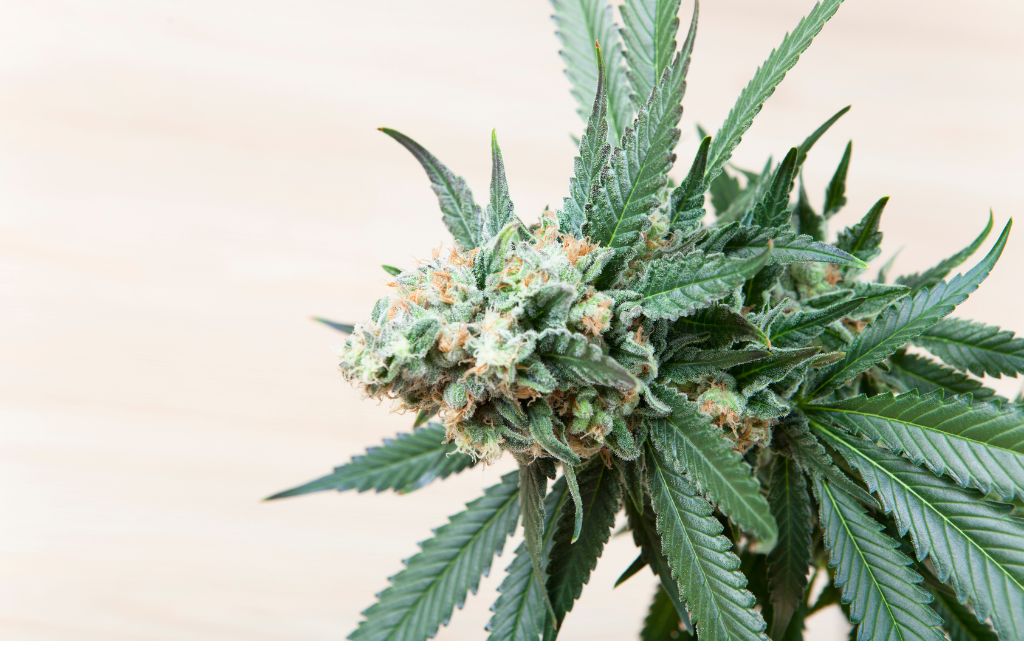THCa Flower: Nature’s Healing Power
In recent years, the spotlight has increasingly turned towards natural remedies and holistic approaches to health. Among these, THCa flower has emerged as a promising candidate for those seeking alternative treatments. This article explores the potential benefits, scientific backing, and real-world applications of THCa flower.
Understanding THCa
THCa, or tetrahydrocannabinolic acid, is a non-psychoactive cannabinoid found in raw and live cannabis. Unlike THC, which is known for its psychoactive effects, THCa does not produce a “high.” This makes it an attractive option for individuals looking to harness the therapeutic benefits of cannabis without the mind-altering effects.
How THCa Works
THCa interacts with the body’s endocannabinoid system, which plays a crucial role in maintaining homeostasis. This system consists of receptors, enzymes, and endocannabinoids that regulate various physiological processes, including pain, mood, and appetite.
- THCa binds to CB1 and CB2 receptors, influencing pain perception and inflammation.
- It inhibits the enzyme COX-2, which is involved in the inflammatory process.
- THCa also acts as an antioxidant, protecting cells from oxidative stress.
Potential Health Benefits
Research into THCa is still in its early stages, but preliminary findings suggest a range of potential health benefits.
Anti-Inflammatory Properties
Inflammation is a common underlying factor in many chronic conditions, such as arthritis and inflammatory bowel disease. Studies have shown that THCa can reduce inflammation by inhibiting the production of pro-inflammatory cytokines.
Neuroprotective Effects
Neurodegenerative diseases like Alzheimer’s and Parkinson’s are characterized by the progressive loss of nerve cells. THCa has demonstrated neuroprotective properties in preclinical studies, suggesting it may help slow the progression of these conditions.
Anti-Nausea and Appetite Stimulation
THCa has been found to alleviate nausea and stimulate appetite, making it beneficial for patients undergoing chemotherapy or those with eating disorders. Its anti-emetic properties are particularly valuable in improving the quality of life for these individuals.
Case Studies and Real-World Applications
Several case studies highlight the practical applications of THCa flower in medical treatments.
Case Study: Arthritis Relief
A 2018 case study documented the experiences of a 65-year-old woman with severe arthritis. After incorporating THCa flower into her treatment regimen, she reported significant pain relief and improved joint mobility. Her inflammatory markers also showed a noticeable decrease.
Case Study: Epilepsy Management
In another case, a 10-year-old boy with refractory epilepsy experienced a reduction in seizure frequency after using THCa flower. His parents noted an improvement in his overall well-being and cognitive function.
Scientific Backing
While anecdotal evidence is compelling, scientific research provides a more robust foundation for understanding THCa’s potential.
Preclinical Studies
Animal studies have demonstrated THCa’s efficacy in reducing inflammation, protecting nerve cells, and alleviating nausea. These findings pave the way for human clinical trials, which are necessary to confirm these benefits in a broader population.
Human Trials
Although limited, some human trials have shown promising results. A 2020 study involving 50 participants with chronic pain found that THCa significantly reduced pain levels without causing psychoactive effects. Another trial focused on patients with inflammatory bowel disease reported similar benefits.
How to Use THCa Flower
THCa flower can be consumed in various ways, each offering unique benefits.
- Raw Consumption: Adding raw THCa flower to smoothies or salads preserves its non-psychoactive properties.
- Juicing: Juicing fresh cannabis leaves and flowers is another effective method to consume THCa.
- Tinctures and Oils: These can be made by infusing THCa flower in a carrier oil, providing a convenient way to dose.
Legal Considerations
The legal status of THCa flower varies by region. In some areas, it is classified similarly to THC, while in others, it is considered a separate entity. Always check local regulations before purchasing or using THCa flower.
Conclusion
THCa flower offers a promising alternative for those seeking natural remedies for various health conditions. Its anti-inflammatory, neuroprotective, and anti-nausea properties make it a versatile option. While more research is needed to fully understand its potential, the existing evidence is encouraging. As interest in holistic health continues to grow, THCa flower stands out as a natural healing powerhouse.
